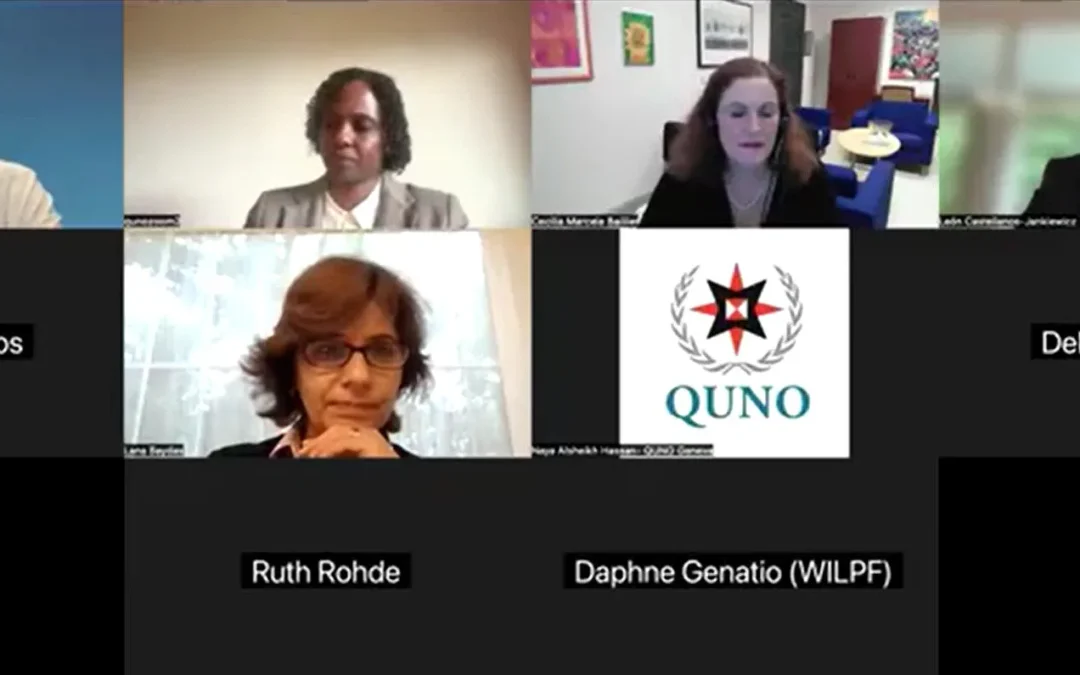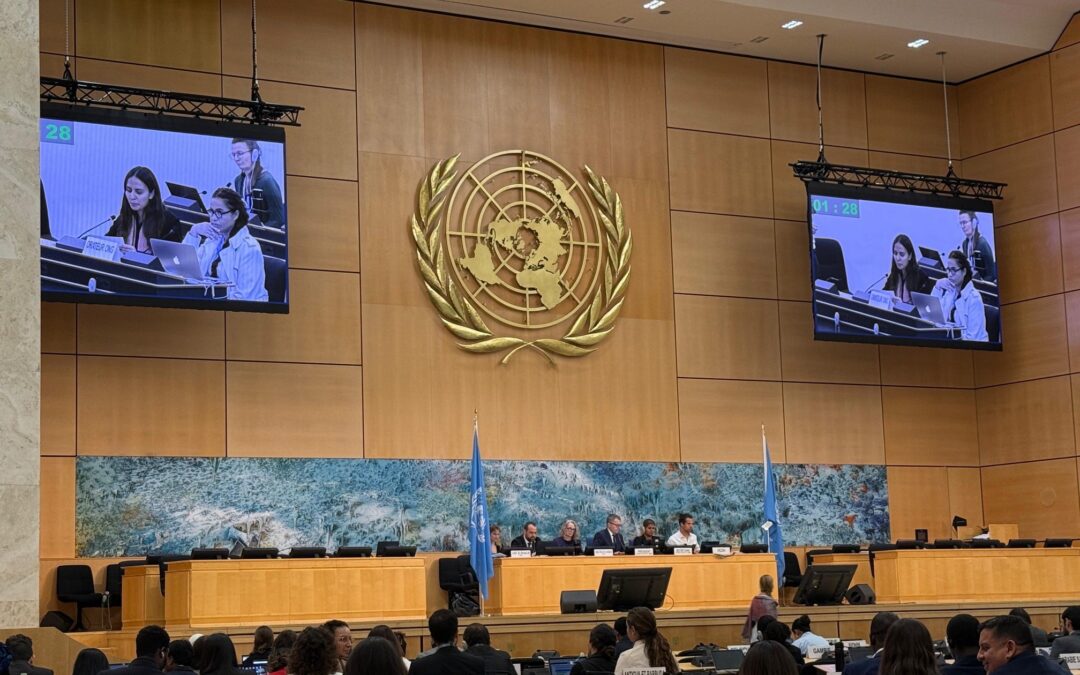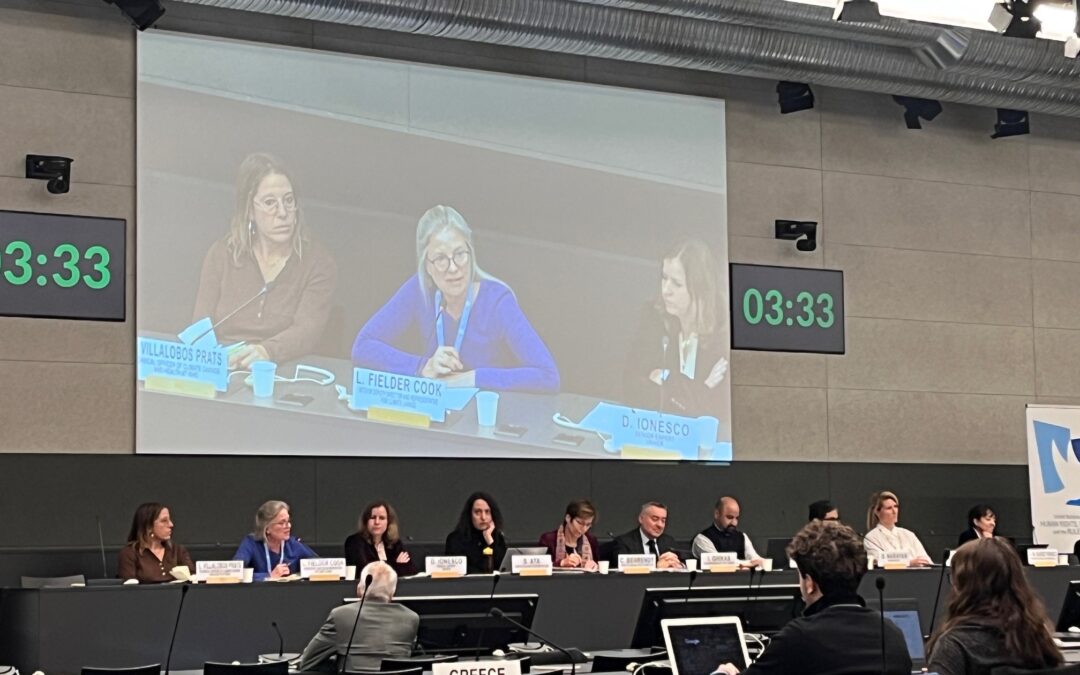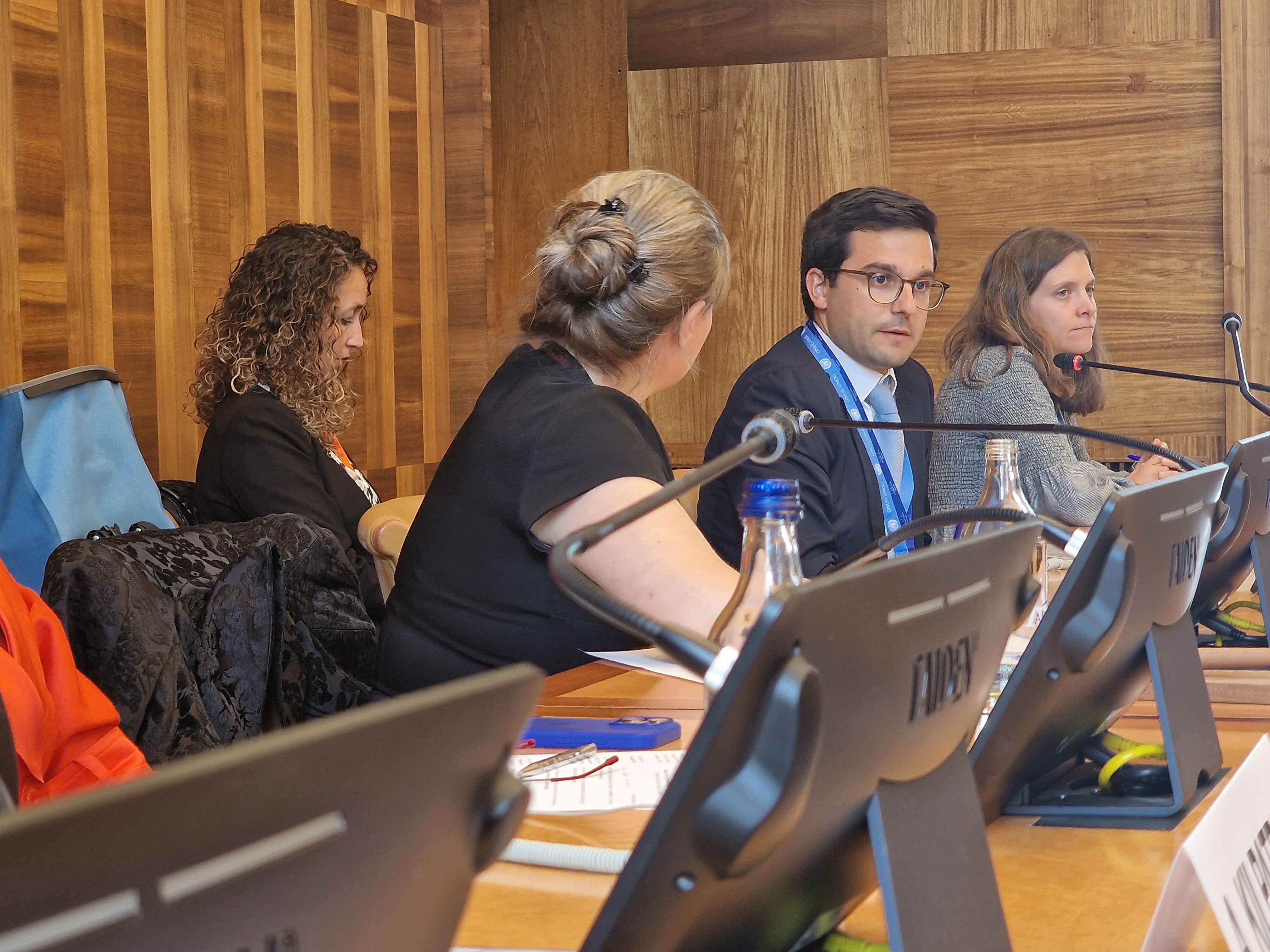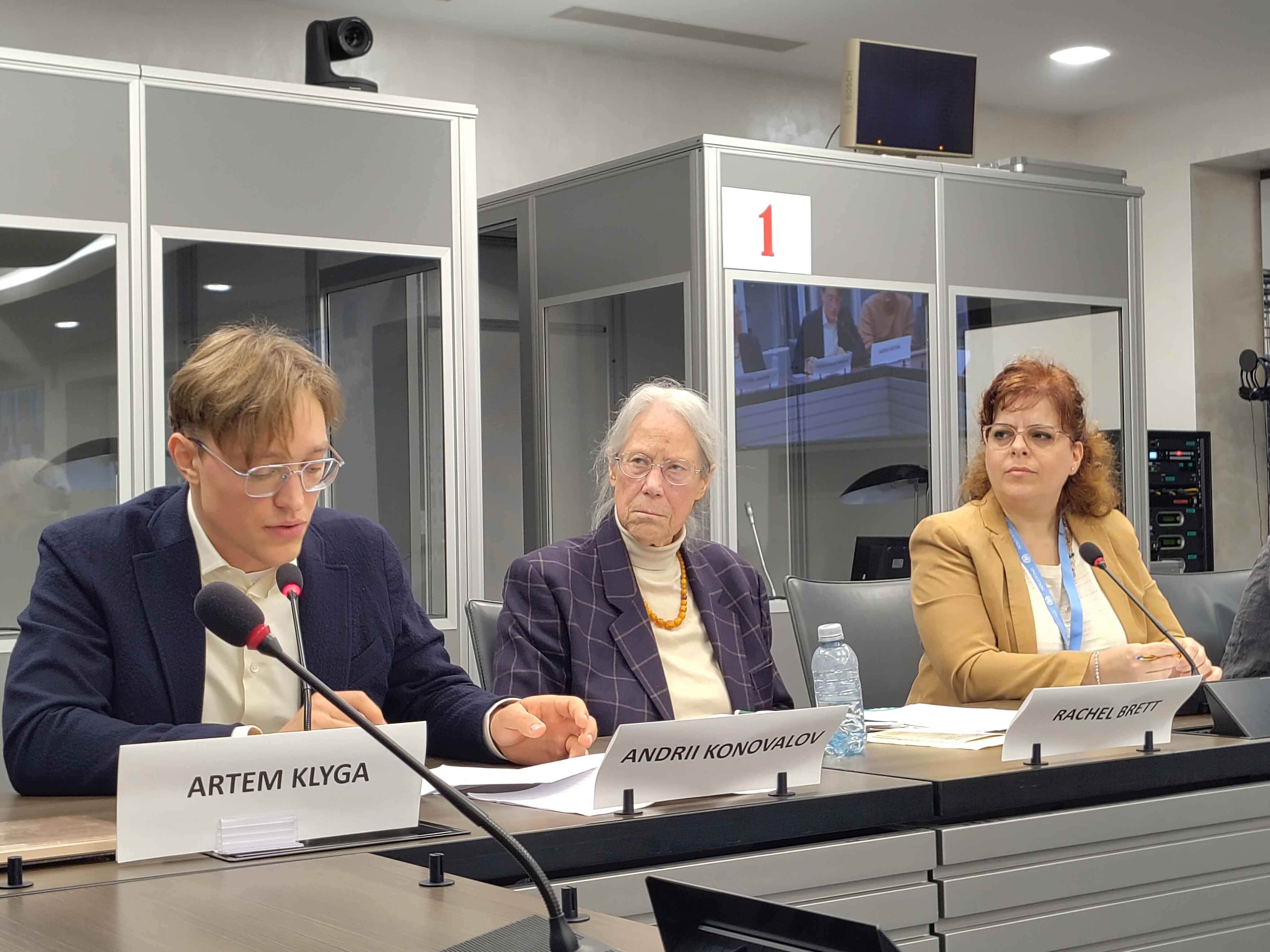In December QUNO, the Baha’i International Community: United Nations Office, and ATD Fourth World partnered to host a breakfast dialogue on the topic of “Peace, poverty, and violence; interlinkages for sustainable development.” The breakfast was attended by a wide range of UN staff, Member States, and representatives from civil society. Keynote speakers included a representative from the Permanent Mission of Timor Leste, as well as Sarah Cliffe, special adviser and assistant secretary-general of Civilian Capacities to the United Nations. Sarah Cliffe stated that “The impact of violence and conflict on social and economic development is deep,” said Dr. Cliffe. “Many countries have seen their development held back by these factors.” A summary note and agenda from the meeting are available here.
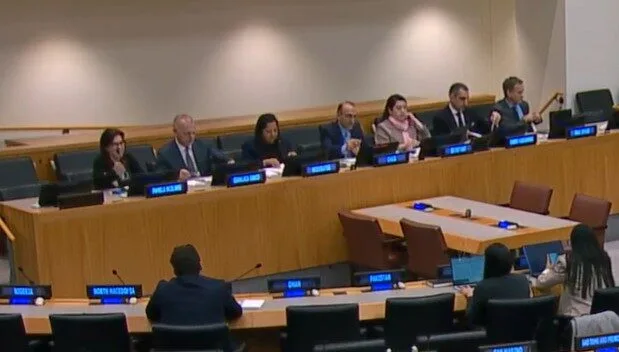
QUNO Representative brings Quaker Perspective to Disaster Resiliency
QUNO NY Representative Kavita Desai had the rare opportunity to moderate a panel at the United Nations entitled “Investing in Resilience to Safeguard the Sustainable Development Goals” during a special event held on October 16, 2025, hosted by the UN Office for Disaster Risk Reduction (UNDRR) and the UN Economic and Financial Committee. The UNDRR event, “Towards a Risk-informed approach to Development: Financing Resilient Development Today for a Sustainable Tomorrow,” highlighted the need to increase investment in disaster protection measures such as early warning systems, community protection plans, and resilient infrastructure to safeguard progress made towards achieving the Sustainable Development Goals (SDGs), a series of 17 globally agreed-upon goals that form a blueprint for sustainable peace and prosperity. As Desai noted in her opening remarks, “It is well known that an ounce of prevention is worth a pound of cure…investing in DRR saves resources in the long-term and futureproofs development gains.” Desai’s panel provided valuable insight on the necessity of financing resilient development, warning that progress towards the SDGs has been limited and that current investments in disaster risk and resilience account for only about 25% of actual needs in many countries. The panel noted that this funding gap emerges […]

